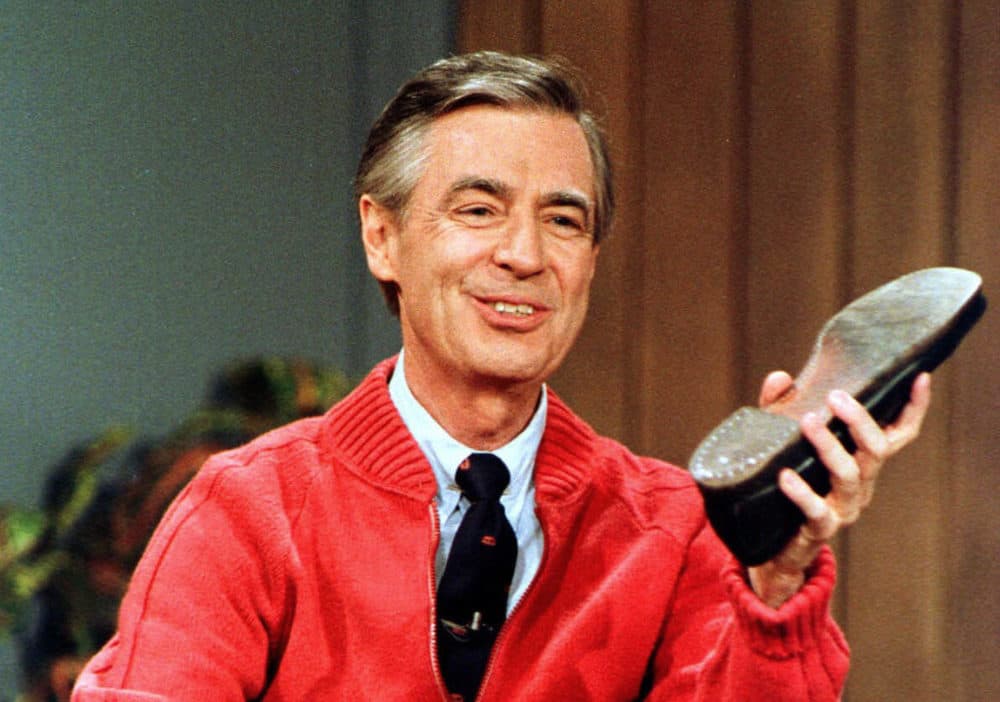Advertisement
Commentary
The Republicans Need A New Hero And His Name Is Mr. Rogers

Three things are certain in life: death, taxes, and politicians leaving office. When it’s time for the Republican Party to cast off its Donald Trump mask, whose visage will replace it as the face of the post-Trump GOP — Mike Pence? Ted Cruz? John Kasich?
As a Republican who can’t wait for lights-out on this Halloween fright of an administration, I have my own suggestion:
Mr. Rogers.
Fred Rogers was a lifelong Republican, a fact that surprised me when I learned it watching the hit documentary “Won’t You Be My Neighbor?” Yes, he’s been dead since 2003. But seeing the film made me want to exhume the beloved children’s entertainer, fit him in a suit, and prop him in the Oval Office with sunglasses a la “Weekend at Bernie’s.”
The movie, and the TV show it memorializes, make clear that “Mr. Rogers’ Neighborhood” was a nicer, saner place than Mr. Trump’s.
The most noxious aspect of Mr. Trump’s Neighborhood is its bullies, racist ones especially. He succors white supremacists. He demonizes brown-skinned, undocumented immigrants as job stealers (an oversimplification, as even Trump’s favorite economist notes) or as unregenerate criminals (flat-out bogus).
Can anyone imagine Rogers, who said empathetically that “children have very deep feelings, just the way everybody does,” snatching kids from their parents at the border? When the movie recalls King Friday XIII, the hand puppet ruler of the Neighborhood, misguidedly demanding a wall be built to keep out change, it’s impossible not to think of our president’s devoutly wished wall against the nation’s changing complexion.
(Of course, Trump’s stated goal is to barricade out illegal immigrants. But the number of undocumented immigrants has plateaued, while we’ve had years of declines in apprehensions of people crossing the border illegally. Throw in the president’s racist history and it’s clear his wall is a brace for the white nationalist spine of his movement.)
Racial tensions ran high in Rogers’s day as in our own. “Mr. Rogers’ Neighborhood” debuted nationally in 1968, its first decade spanning riots in the wake of Martin Luther King, Jr.’s assassination, Black Power and the school busing controversy of the 70s. “Won’t You Be My Neighbor?” juxtaposes footage of African Americans being bounced from whites-only swimming pools with Mr. Rogers sharing a foot bath with Officer Clemmons, a black resident of the Neighborhood.
Rogers, a Presbyterian minister, shared something else: the concern for the needy preached by Jesus and first put on the national agenda by the first Republican president, Abraham Lincoln. When President Reagan’s task force on hunger declared that problem largely solved, Rogers dissented, airing episodes about hunger in King Friday’s kingdom.
The King was the butt of on-show criticism in 1983 for cutting music education money to buy weapons instead. The movie meanwhile recycles the famous clip of Rogers persuading a tough Senate committee chairman to save public television funding that President Nixon wanted to ax. All of these examples suggest Mr. Rogers would not have flacked for the Leave No Millionaire Behind plutocracy of his party today.
He wasn’t warts-free. While no homophobe himself, the film recounts his instruction to gay actor Francois Clemmons, who played his namesake cop, that he shun gay clubs. The potential viewer backlash was a bridge that the Neighborhood’s outspoken creator couldn’t cross.
...Mr. Rogers would not have flacked for the Leave No Millionaire Behind plutocracy of his party today.
On the suggestion of Rogers and others, Clemmons in real life married a woman, only to divorce her after a few years. The film doesn’t address any pain that might have caused her.
Still, Rogers’s relationship with him, Clemmons says on camera, reflected the former’s famous message to children: “I like you just the way you are.” The film recalls the gay-hating goons who protested at Rogers’s funeral because the entertainer had been too tolerant of homosexuality.
This kinder, gentler Republicanism isn’t in the immediate offing. Trump is too popular with the GOP rank and file. But no march toward justice ever succeeded by acquiescing to popular moods. And leaders have upended party orthodoxy before.
William Jennings Bryan’s 1896 campaign refashioned the pro-business Democrats into the party of the little guy. More recently, Barry Goldwater infused the Republicans with the cowboy libertarianism that ultimately elected Ronald Reagan. It’s worth recalling that neither Bryan nor Goldwater won the presidency, yet both made their parties anew.
There’s another possible route to a better GOP. As conservative a man as George Will suggests voting Democratic to cleanse the party of its Trump virus. I agree, and perhaps Mr. Rogers would have, too. There’s nothing like a thrashing at the polls to dope-slap a party to its senses.
If that happens, property values in Mr. Trump’s Neighborhood will rise, after he’s moved out.

